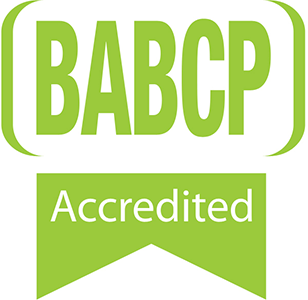Clinical Supervision and Consultation
Clinical Supervision and/or Consultation is offered to other professionals (trained and in training). We all have a variety of different skills, experiences and approaches to offer you.
Specialist Clinical Psychologists with Extensive Experience
Some of our Clinical Psychologists have completed training in offering supervision (e.g. CBT supervision) as well as further specialist post-qualification training, such as:
- training in Cognitive Behavioural Therapy (CBT),
- Cognitive Analytic Therapy (CAT),
- CBT for psychosis,
- MBT
- DBT
- SCM
- EMDR (not trainer level)
- ISTDP
Colleagues work with different client groups so let us know our needs.
Psychological Therapy approaches
These include:
- Integrationist,
- Eclectic
- Cognitive Behavioural Therapy (CBT); Schema Therapy; third wave therapies including Compassion-Focused Therapy (CFT) and Acceptance and Commitment Therapy (ACT); Mindfulness;
- Cognitive Analytic Therapy (CAT);
- Eye Movement Desensitization and Reprocessing Therapy (EMDR);
- Experiential Dynamic Therapy (EDT); Psychodynamic; Emotion Focused Therapy;
- One of our Clinical Psychologists, has experience with Yoga as well.
- Thus, meeting a special interest in the understanding of the physiological and neurological impact of traumatic experiences on physical and psychological difficulties.
- This enables an integration of mind and body practices.
As Clinical Psychologists, we believe that developing integrative and coherent formulation-based treatments for clients’ difficulties, together collaboratively with clients, is of utmost importance.
Which colleague offers Clinical Supervision and has availability?
We have several colleagues offering clinical supervision such as Dr Lisa Tomlinson, Dr Ellen Khan, Nicola Haisman, Dr Agnieszka Gunning, Dr Sabrina “Brie” Nowinski, Dr Selina Kapasi, and others (see our about us page). Contact us today.
We can also offer group clinical supervision, depending on vacancies at the time of your enquiry, so get in touch.
FAO Qualified Clinical/Practitioner Psychologists re seeking clinical supervision or mentoring for yourself:
If you are interested in sourcing good quality clinical supervision or mentoring, please email ncps@clinicalpsychologyservice.co.uk. We look forward to hearing from you.
Who Do We Offer Psychology Clinical Supervision To?
Clinical Psychologists, Counselling Psychologists, Psychotherapists, Psychological Therapists and Counsellors, please contact us for a bespoke programme.
We can together:
- discuss your supervision needs,
- agree a helpful supervision contract to clarify expectations, roles and responsibilities
- to make the supervision as helpful, supportive as can be
- yet, at the same time, enabling constructive challenge to allow for professional and personal growth.
We can help you aim to reach your potential, to work at your personal best, aiming for excellence.
Your workplace wellbeing is important in this Mental Health profession.
Why is Clinical Supervision important for Psychologists and other HealthCare professionals?
Clinical supervision is essential when offering psychological work with clients.
A supervisor aims to help the supervisee become more effective at helping people, to build competence and confidence as well as ensure that the client is not receiving sub standard therapy.
Psychological therapy has been shown to be effective.
Psychological therapy is powerful. It can do much good. Therefore it can be potentially harmful (when not used properly).
Supervision offers governance and facilitative functions; encouraging
theory–practice consolidation and balancing competency with curiosity.
Reviewing how clinical supervision progresses is highly advisable.
There are many dangers for both client and worker if there is no supervision in place for even the most experienced therapist.
All our Clinical Psychologists through this website are required to have appropriate clinical supervision systems in place. There are guidelines in place, including from the professional body. Client identifying features are not shared in supervision meetings.
Why do we offer consultation to psychologists and other helping professionals?
Clinical Supervision usually takes place within an agreed contract of regular meetings, with agreed goals, etc
Sometimes, you may wish to receive one-off consultation, in addition to meeting your usual clinical supervisor (e.g., if the latter does not have specialist knowledge or experience of a particular client group, issue or approach).
Founder, Dr Jurai Darongkamas, has published on Clinical Supervision in peer reviewed journals.
Building on a well known theoretical model, An eight-eyed version of Hawkins and Shohet’s clinical supervision model: the addition of the Cognitive Analytic Therapy concept of the ‘observing eye/I’ as the ‘observing us’ (cited by many others) .
She has also published on Primary Care Mental Health workers’ views of Clinical Supervision.





